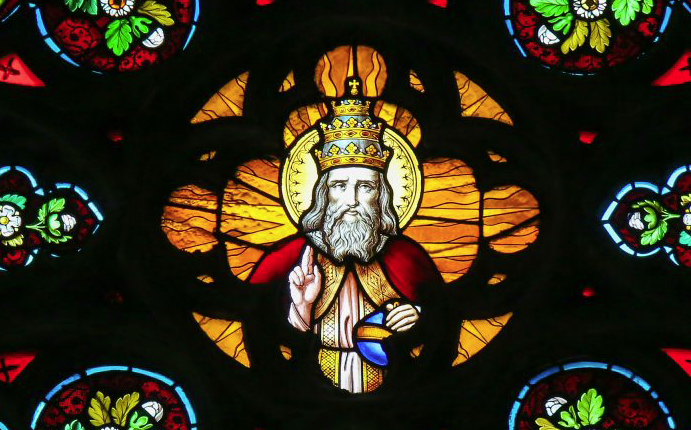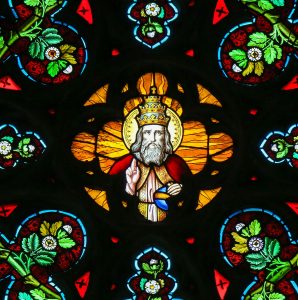
JAMES BLANKENSHIP
[Editor’s note: This is the second in a series. Read the introduction and part 1 here. Find the series every Tuesday and Thursday during Lent, 2018.]
“For God is king over all the earth; sing hymns of praise. God rules over the nations; God sits upon his holy throne.” (Psalm 47:8-9)
We ask with St. Thomas Aquinas, “Why, since the kingdom of God always was, do we then ask that it may come?” The coming of the kingdom of God, for which we pray, can be understood in two ways:
1) We desire the rule of Christ the King here and now in this earthly life, and
2) the heavenly paradise at the end of time and for all eternity.
Through Jesus’ passion, death on the Cross and resurrection, the earthly rule of Christ was established here and now in the hearts and minds of men. This rule of Christ, and the kingdom for which we ask, “demands of its subjects a spirit of detachment from riches and earthly things, and a spirit of gentleness. They must hunger and thirst after justice, and more than this, they must deny themselves and carry the cross” (Quas Primas, 15).
Christ’s rule in this life comes about when we live out the Gospel message and practice heroic Christian virtue.
“In the Lord’s Prayer, ‘thy kingdom come’ refers primarily to the final coming of the reign of God through Christ’s return”
(CCC 2818).
At the end of time, Christ’s return will usher in a new heaven and a new earth where perfect justice will extend through all creation. “Shout for joy and be glad forever in what I am creating. Indeed, I am creating Jerusalem to be a joy and its people to be a delight”  (Isaiah 64:18).
(Isaiah 64:18).
Who doesn’t want to live in that heavenly paradise that God has prepared for us? Who doesn’t want perfect happiness and joy for all eternity? Who doesn’t yearn for the rest that God will grant us?
The faithful servant will receive all of this and more in the kingdom of God which is heaven. And we ask for these blessings when we pray “Thy kingdom come.”
Catechetical Application
The church’s moral teaching on virtue is key to understanding and teaching about the second petition of the Our Father. Christ exhorts us to “be perfect, just as your heavenly Father is perfect” (Mt. 5:48). It’s through the practice of virtue (and grace) that we come to live this perfection and a part of Christ’s kingdom now and in heaven.
Teach the practice of virtue in three easy steps:
1) Start small and take baby steps.
2) Repeat the small action over and over again.
3) Enjoy the reward of a new habit and virtue.
If we live virtuously, God will certainly say to us, “Well done good and faithful servant…come share your master’s joy” (Mt. 25:21).
Questions to Start the Discussion
- How does God rule in our hearts and minds?
- Do we have a responsibility to increase the reign of Christ in this world?
- What will heaven be like for God’s faithful servant?
JAMES BLANKENSHIP is the director of religious education at St. Francis De Sales Church in Purcellville, Virginia. He is founder of the St. Isidore Project, dedicated to the poor by growing food and offering education and community.
Image credit: JORISVO/SHUTTERSTOCK




